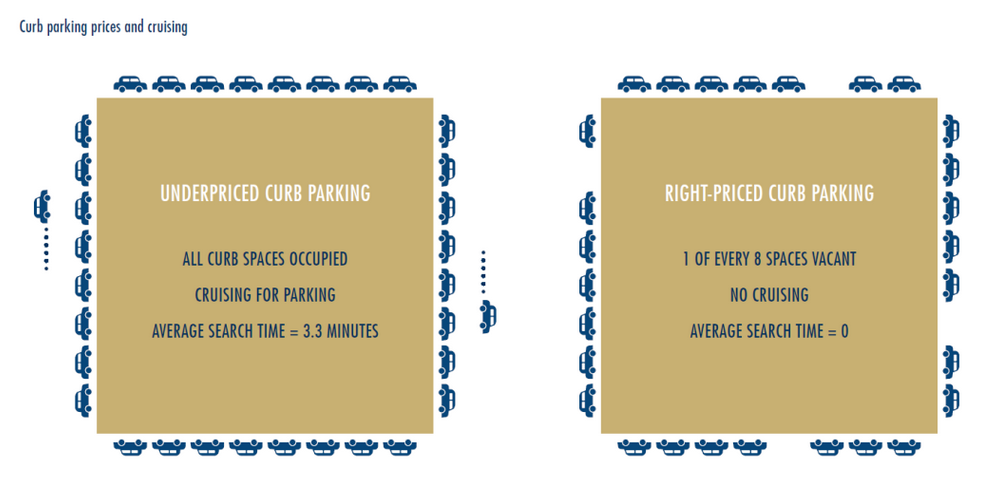Denver Post Got It Wrong: Parking Minimums Make Traffic Worse, Not Better

In an editorial published Monday, the Denver Post defended five City Council members who want to force home builders to provide storage for private automobiles, even though that makes housing less affordable. According to the misguided Post editorial board, making Denver residents pay more for housing is worth it because the parking requirements will reduce traffic congestion.
They couldn’t have gotten it more wrong.
The editorial board cherry-picks a quote from Donald Shoup, the economist who literally wrote the book on how parking requirements damage cities — The High Cost of Free Parking.
The quote in question explains that drivers circling streets looking for curbside parking spots account for a significant amount of traffic. But apparently no one at the Post read beyond the first paragraph of Shoup’s piece.
If they had, they would have seen that drivers cruise for parking not because developers refuse to build off-street spaces. They cruise for parking because the spaces on the street are so cheap. Here’s the part that the Post left out:
When drivers compare the prices of parking at the curb or in a garage, they usually decide the price of garage parking is too high, but instead the reverse is true. The price of curb parking is too low. Underpriced curb spaces are like rent-controlled apartments: they are hard to find, and once you find a space you’d be crazy to give it up. This makes curb spaces even harder to find, and increases the time cost (and therefore the congestion and pollution costs) of searching for them.
The South Pearl Street district, which the City Council and the Post focus on because of a pending parking-light development there, has free street parking. If the Post really wants to reduce congestion, they should be calling for the city to put the right price on those parking spots.
To quote Shoup, the Post’s expert of choice: “The [on-street parking] price is too high if too many spaces are vacant, and too low if no spaces are vacant. When only a few spaces are vacant, the price is just right, and everyone will see that curb parking is both well used and readily available.”

If anything, the Post editorial got more wrong as it went on:
Developers note that off-street parking adds to housing costs, which is undoubtedly true. But unless they can guarantee that none of their tenants in parking-free units will own cars — and there’s no way they can — they’ll end up shifting the cost of parking from the project to the public at large.
This is laughable — the Post completely fails to see how it’s the parking requirements that cost society deeply. The developers can turn a profit with or without the parking, but if they do include parking, it’s the public who shoulders the higher costs in the form of higher rents or home prices. If the Pearl Street development is built as planned, for instance, it would cost tenants $371 less than the average rent in the metro area — in a walkable neighborhood served by buses and the Louisiana-Pearl light rail station.
The people who bear the brunt of parking requirements are the people who can least afford it. To quote a more recent piece from Shoup:
Many families have a negative net worth because their debts exceed their assets: 18 percent of all households, 29 percent of Hispanic households, and 34 percent of Black households had zero or negative net worth in 2011. The only way these indebted people can use the required parking spaces is to buy a car, which they often must finance at a high, subprime interest rate. In a misguided attempt to provide free parking for everyone, cities have created a serious economic injustice by forcing developers to build parking spaces that many people can ill afford.
As for the assertion that off-street parking cuts down on traffic, recent research confirms the exact opposite is true. Guaranteeing off-street parking spaces makes people more likely to drive, creating more traffic, not less.
Denver can’t afford to let the City Council and its cheering section in the Post take the city backwards on development policy. Housing costs and congestion will only get worse if we continue to compel developers to include parking in everything they build. But if it’s legal to build low-car developments, then Denver has a much better shot at making housing more affordable and reducing traffic, even as the city grows.
The City Council Neighborhood and Planning Committee’s proposed moratorium is not a done deal. You can weigh in during a public hearing August 22 at the Denver City and County Building.


